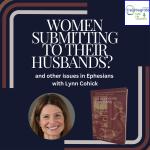The Working Catholic: Truth
by Bill Droel
God has a plan and God plants purposefulness inside God’s creation. The universe has an order, even though we do not yet completely know all about it. Behavior is purposeful, even if we sometimes are guided by impulse or at times violate the intended purpose of nature and life. Events are meaningful, even if our complete understanding of them eludes us. As God’s purposeful partners, we are capable of imposing meaning even on what seem to be the most absurd circumstances.
This is what it means to claim that God is Teleos, Order, or one Truth (capital T). The universe and our existence are teleological; they evolve toward an end. Existence is not random. The lifespan of a person, a city, a country, a planet is not circular. The seasons don’t really “go round and round.” Progress is built-in by the Maker though progress is not linear and true progress is not material acquisition or territorial expansion.
This worldview was not and is not common to all civilizations and cultures. It is recent (about 5,000 years old). It originated in the Middle East. The notion of One God with a Plan (capital P) is “the only new idea that human beings have ever had,” asserts Thomas Cahill in The Gifts of the Jews (Doubleday, 1998). The gift has been extended through those traditions that borrow from Judaism, primarily Christianity and Islam.
Further, God gives us imperfect tools for imperfectly understanding the meaning of life and its events. Those tools—still in a developmental stage–are our collective stories, the arts, reason and science, including the social sciences. All truth (lower case t) leads to Truth (capital T). That’s why a Christian who denies reason/science itself really denies the existence of God, who is Reason (capital R), Logos (Logic), The Word, or Teleos. A Christian who asserts that there are “alternative facts” or that “truth isn’t always true,” thereby denies the existence of God.
Movements are a blend of many elements: groups, magazines, intellectuals, fervent voices, conflicting strategies and more. Movements often make a difference; feminism for example. It is not necessary that one know anything about Mary Wollstonecraft (1759-1797) or anything about the 1872 event on West Main St. in Rochester involving Susan B. Anthony (1820-1906) to be profoundly influenced by feminism.
For three decades I was honored to instruct college students in the humanities, philosophy and theology. We often devoted a class or two to postmodernism. I don’t recall a single student who had heard of Jacques Derrida (1930-2004) or Michel Foucault (1926-1984). Several had heard of Madonna (aka Madonna Louise Ciccone of Bay City, Michigan), but they did not regard her as a serious artist. Nonetheless, the postmodern movement (with which these people and others are associated) had a pronounced influence on my students. Remember: Movements are a mix of elements and movements contain sub-themes, factions and contradictions.
George Packer treats postmodernism in Last Best Hope: America in Crisis and Renewal (Farrar, Straus, 2021), though he uses other terms for it. It is a movement that rejects “objectivity, rationality, science, equality and freedom of the individual.” According to postmodernism “all relations are power relations, everything is political and claims of reason and truth are social constructs that maintain those in power.” Everything is relative to a time and place.
Packer says that postmodernism is obsessed with language—with deconstructing older pieces of literature and with conquering standard terms and phrases. Instead, postmodern types insist on new language, words like systemic, privilege, toxic, non-binary and lots more. He also says that postmodern people focus on the individual self. If there is no outside truth, then the standard of truth becomes one’s own experience, one’s feelings and frequently one’s feelings of hurtfulness.
The hardcore postmodernists deny the existence of God. Some postmodern people, like Madonna, retain a belief in God but for the most part they allow for God’s existence in terms suitable to their relativistic worldview.
To be continued with Packer’s thoughts about young adult social activists who are influenced by postmodernism…
Droel is associated with National Center for the Laity (PO Box 291102, Chicago, Il 60629).










